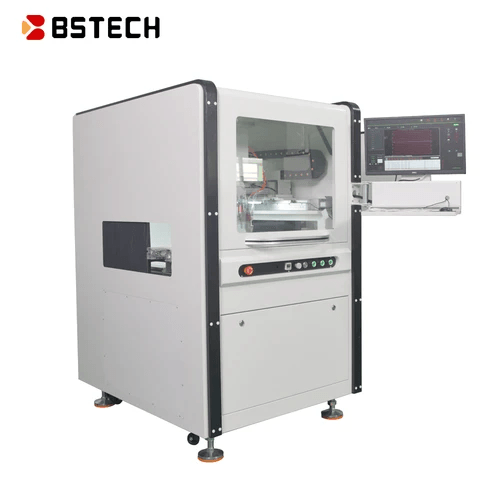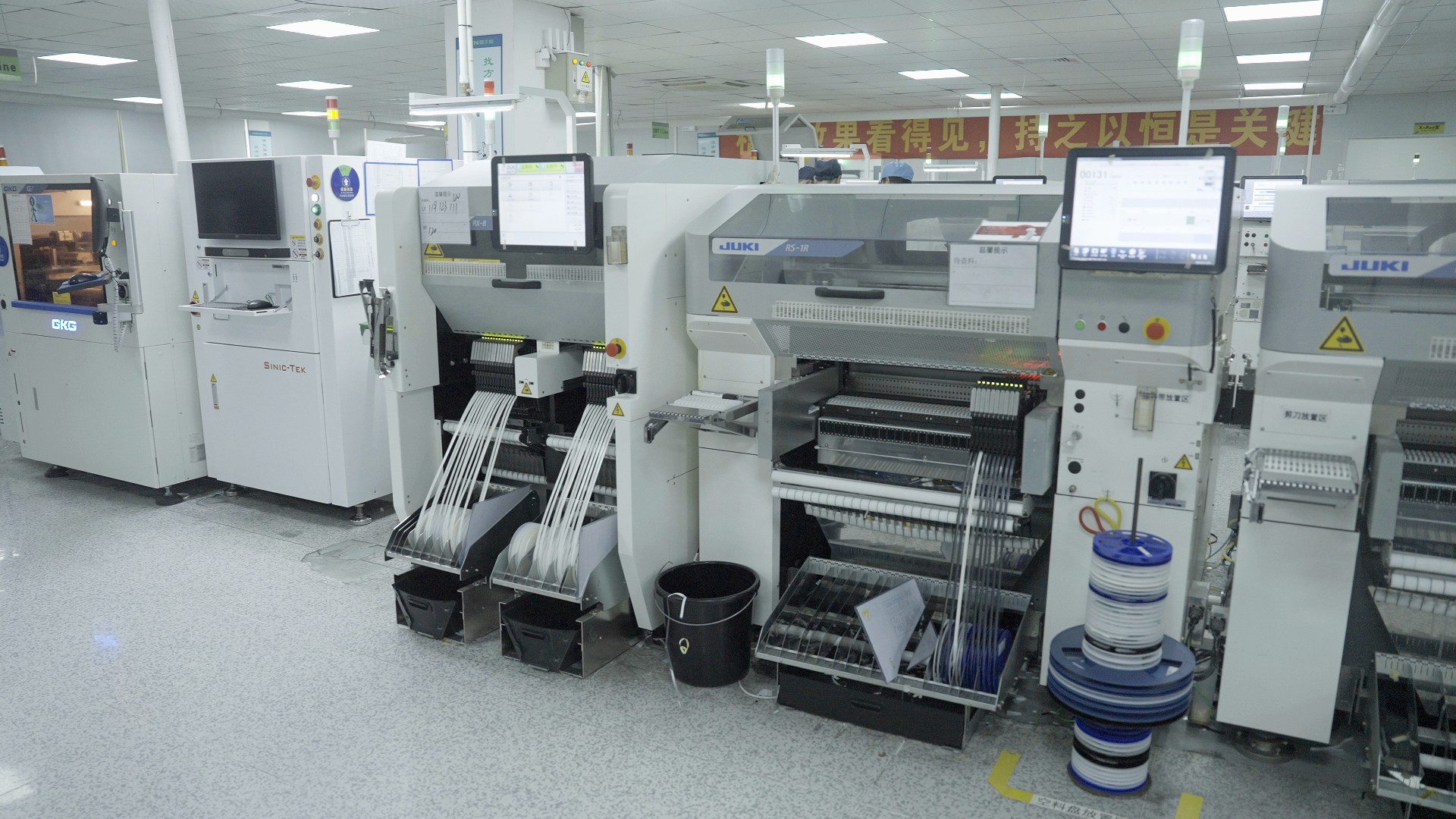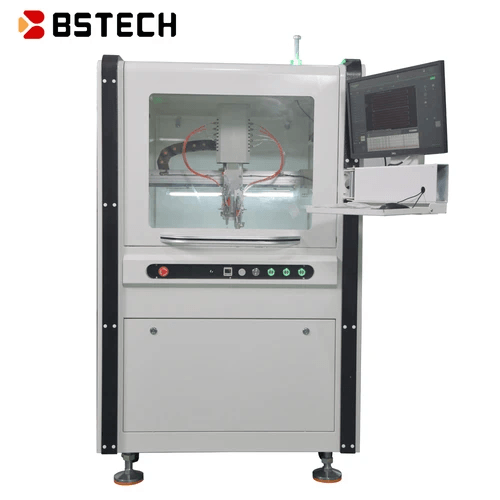Introduction
In the fast-paced world of electronics manufacturing, the importance of conformal coating cannot be overstated. This protective layer is essential for safeguarding delicate components on printed circuit boards (PCBs) from environmental factors such as moisture, dust, and chemicals. With the rise of automated conformal coating processes, manufacturers can ensure greater reliability and longevity in their products, elevating the standards in PCB assembly.
Importance of Conformal Coating in Electronics
Conformal coating plays a crucial role in enhancing the durability of electronic devices. By providing a barrier against contaminants, it prevents failures that could arise from environmental exposure, thus ensuring optimal performance over time. As electronics become increasingly miniaturized and complex, the demand for effective PCB coating solutions has surged.
Overview of PCB Manufacturing in China
China has established itself as a powerhouse in PCB manufacturing, leading global production with advanced technologies and competitive pricing. The country’s vast network of skilled labor and sophisticated infrastructure enables rapid turnaround times for high-volume orders. As a result, many companies around the world are turning to Chinese manufacturers for their PCB assembly needs.
The Rise of Automated Conformal Coating
The shift towards automated conformal coating represents a significant leap forward in efficiency and precision within the electronics manufacturing sector. Automation minimizes human error while maximizing throughput, allowing manufacturers to meet increasing demands without compromising on quality. This trend is particularly evident in PCB manufacturing operations where speed and accuracy are paramount to staying competitive.
What is Conformal Coating?

Conformal coating is a protective layer applied to printed circuit boards (PCBs) that safeguards electronic components from environmental hazards. This coating adapts to the surface contours of the PCB, ensuring that every nook and cranny is shielded against moisture, dust, chemicals, and thermal stress. In the realm of electronics manufacturing, especially in PCB assembly, conformal coatings play a crucial role in enhancing reliability and longevity.
Definition and Purpose
Conformal coating refers to the application of thin films that conform to the intricate shapes of electronic assemblies. The primary purpose is to provide a barrier against contaminants and environmental factors that could lead to corrosion or failure of sensitive electronic components. In automated conformal coating processes, this application becomes efficient and precise, reducing human error while increasing production speed in PCB manufacturing.
Types of Conformal Coatings
There are several types of conformal coatings used in electronics manufacturing, each with its unique properties suited for different applications. Common types include acrylics, silicones, polyurethanes, and epoxy resins; each offers distinct advantages such as flexibility or chemical resistance. By selecting the appropriate type for specific PCB assembly needs, manufacturers can optimize performance and durability.
Benefits for PCB Manufacturing
The benefits of using conformal coatings in PCB manufacturing are manifold and impactful across various sectors. First off, they enhance the durability of electronic components by protecting them from moisture ingress and corrosive substances—key factors that can lead to premature failures. Moreover, employing automated conformal coating techniques not only streamlines production processes but also improves cost efficiency by minimizing waste during PCB coating applications.
The Technology Behind Automated Conformal Coating

Automated conformal coating is revolutionizing the electronics manufacturing landscape, particularly in PCB assembly. As the demand for reliable and durable electronic components continues to grow, automation plays a pivotal role in enhancing efficiency and precision during the coating process. By integrating advanced technologies, manufacturers can achieve consistent quality while significantly reducing production time.
Role of Automation in PCB Assembly
In PCB manufacturing, automation streamlines various processes, including conformal coating application. Automated systems ensure that each board receives an even layer of protective material, which is essential for safeguarding sensitive components from environmental factors such as moisture and dust. This not only improves the overall reliability of products but also reduces the risk of human error associated with manual application methods.
The integration of robotics and automated machinery into PCB assembly lines has allowed for greater flexibility in production schedules. Electronics manufacturers can quickly adapt to changing demands without sacrificing quality or increasing costs. Moreover, automation enables real-time monitoring and adjustments during the coating process, ensuring that every coated board meets stringent industry standards.
Leading Techniques in Coating Application
Several leading techniques have emerged within automated conformal coating processes that enhance efficiency and effectiveness in PCB manufacturing. Among these are selective spraying, dipping, and curtain coating methods—each offering unique advantages depending on the specific requirements of the project. Selective spraying is particularly popular due to its ability to target specific areas on a PCB while minimizing waste.
Dipping techniques are favored for their simplicity and thorough coverage; however, they may require additional drying time compared to other methods. Curtain coating stands out for its capacity to coat large volumes quickly without compromising quality—perfect for high-demand production environments often seen in PCB manufacturing in the USA. By leveraging these advanced techniques, manufacturers can optimize their operations while ensuring superior protection for electronic components.
Innovations in Coating Machinery
The realm of automated conformal coating has witnessed remarkable innovations that enhance machinery capabilities within electronics manufacturing facilities. Modern machines now incorporate features such as programmable settings and AI-driven diagnostics that allow operators to customize parameters based on specific project needs easily. These advancements not only improve efficiency but also help maintain consistent quality across batches.
Additionally, new materials used in automated conformal coatings are being developed with enhanced properties such as increased thermal stability and better adhesion characteristics—further boosting performance standards within PCB assembly lines. Manufacturers are increasingly investing in smart technology that integrates IoT capabilities into their machinery; this allows for remote monitoring and predictive maintenance strategies that minimize downtime.
As innovations continue to unfold within this space, we can expect more sophisticated solutions tailored specifically for evolving challenges faced by electronics manufacturers globally—a trend particularly evident within China's booming PCB manufacturing sector.
Key Players in the PCB Coating Industry

The landscape of the PCB coating industry is marked by several key players, each contributing to the evolution of automated conformal coating technologies. As electronics manufacturing continues to grow, particularly in regions like China, these companies are at the forefront of innovation and efficiency. Understanding their roles helps illuminate the future of PCB manufacturing and its global impact.
Bensun Technology Co., Ltd. Overview
Bensun Technology Co., Ltd. has established itself as a leader in automated conformal coating solutions within the PCB manufacturing sector. With a focus on high-quality products and innovative techniques, Bensun caters to a diverse range of industries needing reliable PCB assembly services. Their commitment to research and development ensures that they remain competitive in a rapidly evolving electronics manufacturing landscape.
Bensun’s state-of-the-art machinery allows for precise application of conformal coatings, significantly enhancing durability and performance for electronic components. By adopting automation processes, they not only improve efficiency but also reduce labor costs associated with traditional manual methods. This positions Bensun as a pivotal player in elevating standards within the PCB coating market.
Moreover, their partnerships with other technology firms enable them to integrate cutting-edge advancements into their offerings continually. This collaborative approach fosters innovation while meeting the growing demand for high-quality PCBs in various applications worldwide. As such, Bensun Technology stands out as a beacon for those seeking excellence in automated conformal coating solutions.
Other Notable Manufacturers in China
While Bensun Technology is certainly notable, it’s essential to recognize other significant manufacturers contributing to China's booming PCB coating industry. Companies like Shenzhen Hualong Technology Co., Ltd., and JY Electronics are also making waves with their innovative approaches to conformal coating applications. These manufacturers leverage advanced technologies similar to those employed by Bensun but often bring unique methodologies that cater specifically to niche markets.
Shenzhen Hualong focuses heavily on eco-friendly materials for their coatings, aligning with global sustainability trends while ensuring robust protection for electronic assemblies. Meanwhile, JY Electronics has carved out its niche by specializing in rapid prototyping services alongside automated conformal coating processes that streamline production timelines significantly—critical factors in an ever-competitive market.
Together, these companies contribute not only to local economies but also play a vital role on the international stage as demand grows for reliable electronics manufacturing solutions across various sectors—from automotive to consumer electronics—underscoring China's position as a powerhouse in global PCB production.
Global Impact on Electronics Manufacturing
The rise of automated conformal coating technologies has far-reaching implications beyond just local markets; it influences global electronics manufacturing trends significantly. As more companies adopt these advanced techniques from leading Chinese manufacturers like Bensun and others, we see enhanced consistency and quality across PCBs produced worldwide. This ripple effect ensures that products meet stringent international standards while remaining cost-effective—a win-win scenario for manufacturers globally.
Moreover, with countries like the USA looking closely at domestic PCB manufacturing capabilities due to supply chain concerns highlighted during recent global events, understanding these key players becomes even more crucial. Automated conformal coating not only boosts productivity but also allows American companies to compete effectively against overseas counterparts by emphasizing quality assurance through superior technology adoption.
In conclusion, recognizing these key players sheds light on how innovations within China's PCB coating industry are shaping broader trends across global electronics manufacturing landscapes—ultimately leading toward higher quality products that consumers can trust without sacrificing affordability or sustainability.
Benefits of Using Automated Conformal Coating

Automated conformal coating has revolutionized the landscape of electronics manufacturing, particularly in PCB manufacturing. This innovative approach offers a multitude of benefits that enhance not only the quality of the products but also the efficiency of production processes. By integrating automation into PCB assembly, manufacturers can achieve significant improvements in cost-effectiveness and reliability.
Cost Efficiency in PCB Coating
One of the primary advantages of automated conformal coating is its ability to reduce costs associated with PCB manufacturing. Automation minimizes human error and labor costs, allowing companies to allocate resources more effectively while maintaining high-quality standards. Furthermore, by optimizing material usage through precision application techniques, manufacturers can significantly lower waste and improve their bottom line.
In addition to direct savings on labor and materials, automated systems enhance throughput rates during production runs. This means that electronics manufacturers can produce more PCBs within a shorter timeframe without sacrificing quality or performance. As a result, businesses involved in PCB manufacturing in the USA and beyond can remain competitive by leveraging these cost efficiencies provided by automated conformal coating technologies.
Enhanced Durability for Electronic Components
The durability of electronic components is paramount in ensuring their longevity and performance under various environmental conditions. Automated conformal coating provides a robust protective layer that shields PCBs from moisture, dust, chemicals, and temperature fluctuations. This enhanced protection is crucial for industries where reliability is non-negotiable—think aerospace, automotive, and medical devices.
Moreover, with advancements in coating materials used in automated systems, manufacturers are now able to achieve superior adhesion and flexibility compared to traditional methods. These properties contribute to an overall increase in the lifespan of electronic components while reducing the risk of failures due to environmental stressors. Ultimately, this durability translates into higher customer satisfaction as end-users experience fewer product malfunctions over time.
Streamlined Production Processes
In today's fast-paced electronics manufacturing environment, streamlined production processes are essential for meeting market demands efficiently. Automated conformal coating integrates seamlessly into existing PCB assembly lines; it reduces bottlenecks typically associated with manual application methods while improving overall workflow efficiency. The result? Faster turnaround times from design to delivery without compromising on quality.
Additionally, automation allows for real-time monitoring and adjustments during the coating process—something manual applications simply cannot match. This capability ensures consistency across batches while allowing manufacturers to respond quickly to any issues that may arise during production runs. By embracing automated conformal coating solutions, companies can not only enhance productivity but also position themselves as leaders in innovation within the competitive realm of electronics manufacturing.
Challenges and Solutions in PCB Coating
In the realm of automated conformal coating, several challenges can arise that can impact the efficiency and effectiveness of electronics manufacturing. From uneven application to environmental factors affecting drying times, these issues can lead to significant setbacks in PCB manufacturing processes. Understanding these common pitfalls is crucial for manufacturers aiming to optimize their PCB assembly lines.
Common Issues Faced in Coating
One of the most prevalent issues in conformal coating is uneven thickness, which can compromise the protective qualities of the coating. This inconsistency often stems from improper equipment settings or variations in material viscosity, leading to inadequate protection against moisture and contaminants. Additionally, dust and other particulates in the production environment can settle on PCBs before they are coated, resulting in defects that could hinder performance.
Another challenge is related to curing times; if coatings do not cure properly due to temperature fluctuations or humidity levels, they may not provide adequate protection over time. Furthermore, adhesion problems may arise if surfaces are not cleaned thoroughly before application, resulting in delamination or peeling later on. These common issues underscore the need for rigorous attention to detail throughout the entire PCB coating process.
Mitigation Strategies in Electronics Manufacturing
To combat these challenges effectively, manufacturers must implement robust mitigation strategies tailored for PCB manufacturing environments. First and foremost, regular calibration of automated conformal coating machinery is essential; this ensures consistent application and minimizes variability across different batches of PCBs. Moreover, investing in advanced monitoring systems can help track environmental conditions—such as temperature and humidity—allowing manufacturers to adjust processes dynamically.
Training staff on best practices for surface preparation also plays a vital role; ensuring that all components are clean and free from contaminants before coating significantly enhances adhesion rates and overall quality. Additionally, adopting a proactive approach by conducting regular quality inspections during various stages of production helps identify potential issues early on—before they escalate into larger problems that could derail entire projects.
Importance of Quality Control
Quality control (QC) cannot be overstated when it comes to automated conformal coating within electronics manufacturing. A stringent QC process ensures that each layer applied meets industry standards for thickness and uniformity while adhering well to substrates—critical factors that determine long-term reliability of electronic devices produced via PCB assembly techniques.
Implementing comprehensive testing protocols—including visual inspections and mechanical tests—can detect flaws early on while providing valuable feedback for continuous improvement efforts within PCB manufacturing operations both domestically (in the USA) and abroad (like China). By prioritizing quality control at every stage—from initial design through final inspection—manufacturers can significantly reduce waste associated with defective products while bolstering their reputation as leaders in high-quality electronics production.
Conclusion
In conclusion, the world of automated conformal coating is rapidly evolving, and its significance in electronics manufacturing cannot be overstated. As the demand for reliable and durable electronic components continues to rise, so does the need for efficient PCB manufacturing processes. The integration of advanced technologies in conformal coating not only enhances product longevity but also streamlines PCB assembly, making it a vital component of modern electronics.
Future Trends in Conformal Coating
Looking ahead, future trends in conformal coating will likely focus on sustainability and eco-friendly materials. As manufacturers strive for greener practices, the development of biodegradable coatings could become a game-changer in the industry. Additionally, advancements in automation will continue to improve efficiency and precision in PCB coating applications, ensuring that electronics manufacturing remains competitive on a global scale.
The Role of China in Global PCB Manufacturing
China plays a pivotal role in global PCB manufacturing, serving as both a leader and innovator within the industry. With its vast resources and skilled workforce, China has established itself as a hub for automated conformal coating technologies that enhance productivity and quality control. As competition increases from other regions like the USA, China's ability to adapt and innovate will determine its ongoing success in electronics manufacturing.
Making Informed Choices in Coating Equipment
When it comes to selecting equipment for automated conformal coating, making informed choices is crucial for optimizing production efficiency and product quality. Manufacturers should consider factors such as compatibility with various types of coatings, ease of integration into existing PCB assembly lines, and long-term maintenance costs. By prioritizing these aspects during procurement, companies can ensure they are well-equipped to tackle the challenges posed by modern electronics manufacturing.
